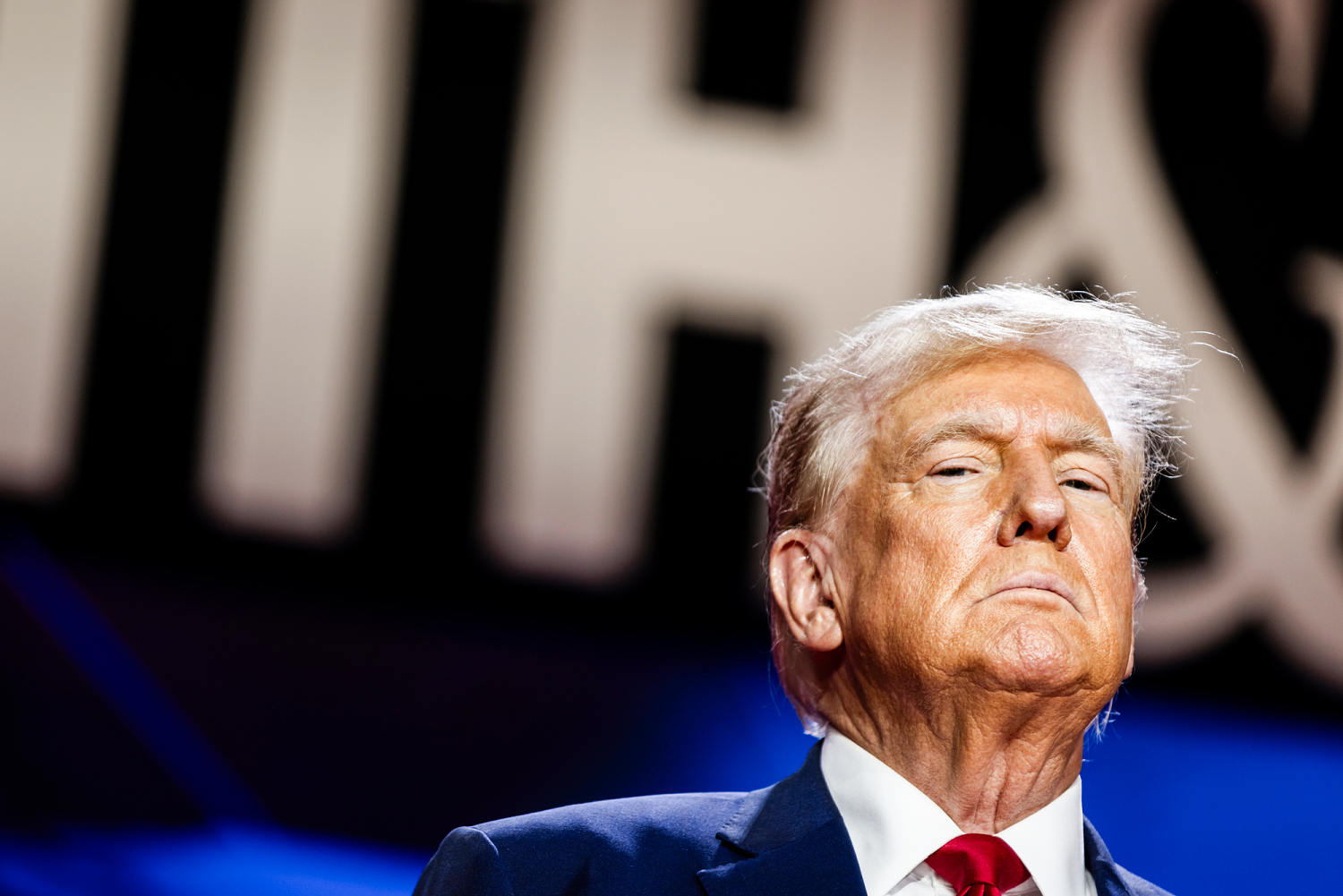
Last week, former President Donald Trump appeared on the popular “All-In” podcast, which is hosted by four Silicon Valley entrepreneurs and investors. During the conversation, Trump raised familiar talking points, including that immigration across the southern border is an “invasion of our country.” But the conversation took an unexpected turn when one of the hosts, investor Jason Calacanis, asked Trump to “promise us you will give us more ability to import the best and brightest around the world to America.” Trump responded affirmatively.
“I do promise,” Trump said. “But I happen to agree, otherwise I wouldn’t promise. … You graduate from a college, I think you should get automatically as part of your diploma a green card to be able to stay in this country, and that includes junior colleges too.”
Some of his changes of heart may be explained by efforts to court or reward affluent donors as he scrambles to scrounge up cash.
Trump’s pledge was a shocking pivot. During his presidency, he didn’t just crack down on undocumented immigration, but on immigration across the board — and he adopted policies designed to restrict student visas and make it harder for foreign students to stay after graduation. Automatically providing foreign students with green cards upon graduation would dramatically increase the number of people permitted to have legal residency in the U.S. annually.
The next day, Trump’s campaign walked back his pledge of automatic green cards. A Trump spokesperson said that a green card cannot be awarded to foreign students until after they undergo “the most aggressive vetting process ever to exclude all communists, radical Islamists, Hamas supporters, America haters and public charges,” and that Trump believes the U.S. “ought to keep the most skilled graduates who can make significant contributions to America.” It’s unclear what criteria would be used to determine if someone fits into the excluded categories and who can make “significant contributions” to the nation.
Despite the huge caveats, Trump’s maneuver was still striking. He was, for a moment, seemingly willing to turn his back on one of the most foundational policy commitments of his political career. And even with the asterisks, one wonders if Trump is still trying to signal that he could potentially be moderate on the issue of skilled immigrants. Regardless of the fact that Trump’s pledge has little credibility, the big question is “Why?”
Here’s a possible answer: Speaking on an influential podcast hosted by rich tech figures — at least two of whom are major Trump fundraisers — Trump wanted to tell his well-to-do audience what they wanted to hear. Silicon Valley needs access to skilled immigrants to maintain its competitive edge in the global tech world, and Trump may have hoped that seeming to compromise on the issue and dangle a carrot might provide people in the tech world with an incentive to give him some extra cash.
Throughout his 2024 campaign, Trump has had a pattern of flip-flopping on policy issues in a manner that has eluded obvious explanation. But it’s reasonable to hypothesize that some of his changes of heart may be explained by efforts to court or reward affluent donors as he scrambles to scrounge up cash for his campaign and his unending legal troubles.
For example, Trump recently reversed entirely on the issue of cryptocurrencies. Whereas in past years he’s called crypto a “scam” and a “disaster waiting to happen,” in recent statements he has celebrated bitcoin and criticized President Joe Biden’s position on it, and announced that he’s willing to accept donations in cryptocurrency. He’s even called for a “crypto army” to back him. As my colleague Steve Benen has pointed out, a possible explanation might be found in recently announced support from the billionaire Winklevoss twins, who own a cryptocurrency company and have donated $1 million each to support Trump, plus issued a statement slamming Biden’s regulatory attitude toward crypto and praising Trump’s.
And this spring, Trump abruptly switched his long-held position on TikTok. Despite calling for a TikTok ban for years on national security grounds, he ended up lobbying against a bill that would have fulfilled his longtime wish. (Despite Trump’s eleventh-hour about-face, that bill passed into law with Republican support.) As I noted at the time, “Nobody knows what’s caused his shocking reversal, but a week ago Trump had a meeting with an ultrawealthy hedge fund manager who has a multibillion-dollar stake in ByteDance, and could theoretically be a potential future donor.”
This all comes as Trump has displayed new desperation in meetings with donors, reportedly naming funding targets for oil executives in order to secure his assurance that he’ll pursue the policy regime they prefer. Those efforts could potentially violate federal bribery laws, according to some government watchdogs.
Trump has always been transactional, but this election cycle has added expenses due to constant court fights and legal fees. And since he was last president, Silicon Valley has become a more ideologically heterogeneous place, and a significant chunk of the scene has shifted aggressively to the right; Trump may be willing to adopt new positions to tap into their extraordinary wealth.
Every time Trump does one of these about-faces, he’s not signaling only to his immediate audience that his policy vision could be shaped by the highest bidder, but that potentially anybody could win him over if they name the right price. One can only imagine how this kind of ethos would evolve if Trump were to win a second term, and deep-pocketed donors might be more convinced than ever that patronizing his businesses or promising future business with him could win them policy favors. From what we can see, at least, Trump looks more for sale than he ever has.

Leave a Reply